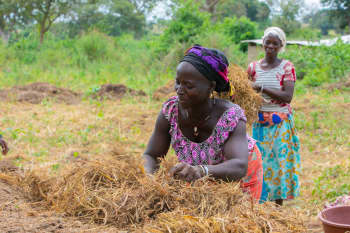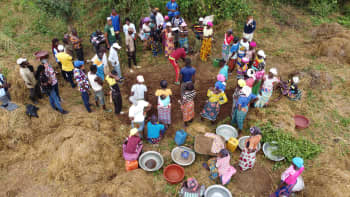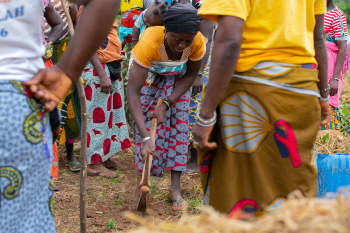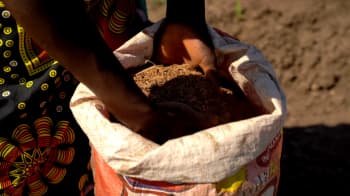From Composting to Carbon Credits:
How Climate-Smart Agri Projects are Boosting Food Security across Africa
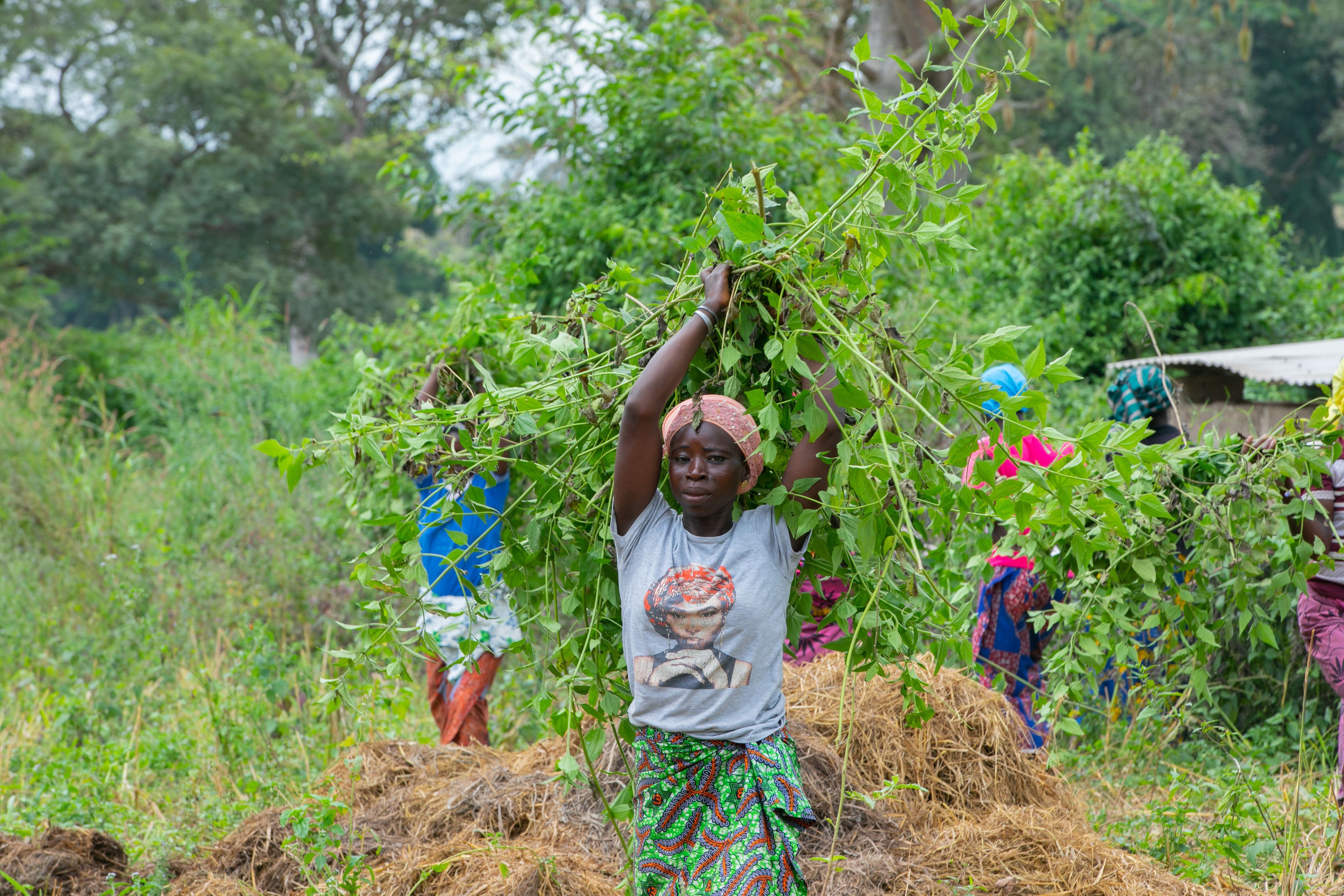
Last year, Pee Cee Holdings, a food and beverage wholesaler and retailer in Sierra Leone, took a leap into the unknown.
The company imports about 10,000 tons of onions annually from Europe but was being stung by steep price hikes and market volatility, inspiring it to take a totally new approach. Pee Cee, which traditionally focused on wholesale and retail distribution outlets — spanning Sierra Leone, Liberia, Guinea and Senegal — created a new subsidiary to spearhead its agricultural efforts.
“Given the price increases last summer, we decided to start cultivating onions ourselves,” says Mohamed Sowe, General Manager of Pee Cee Agriculture (PCA), Pee Cee Holdings’s newly-created agribusiness.
However, the company’s first attempt at growing crops on a low-lying, swampy plot of land largely failed—and management realized they needed outside support to succeed.
“We started working with IFC,” says Sowe. “They brought in an experienced agronomist, and we built a team around him. With IFC’s support, we took a much more professional approach, looking at the gradient of the land, the slope, and the properties of the soil. We also introduced irrigation systems appropriate for the land.”
This new approach is proving successful: PCA has already harvested 1,000 metric tons of high-quality onions. Over the next four years, the company plans to ramp up production to more than 22,000 tons of onions annually, replacing about 90 percent of Sierra Leone’s onion imports with local produce.
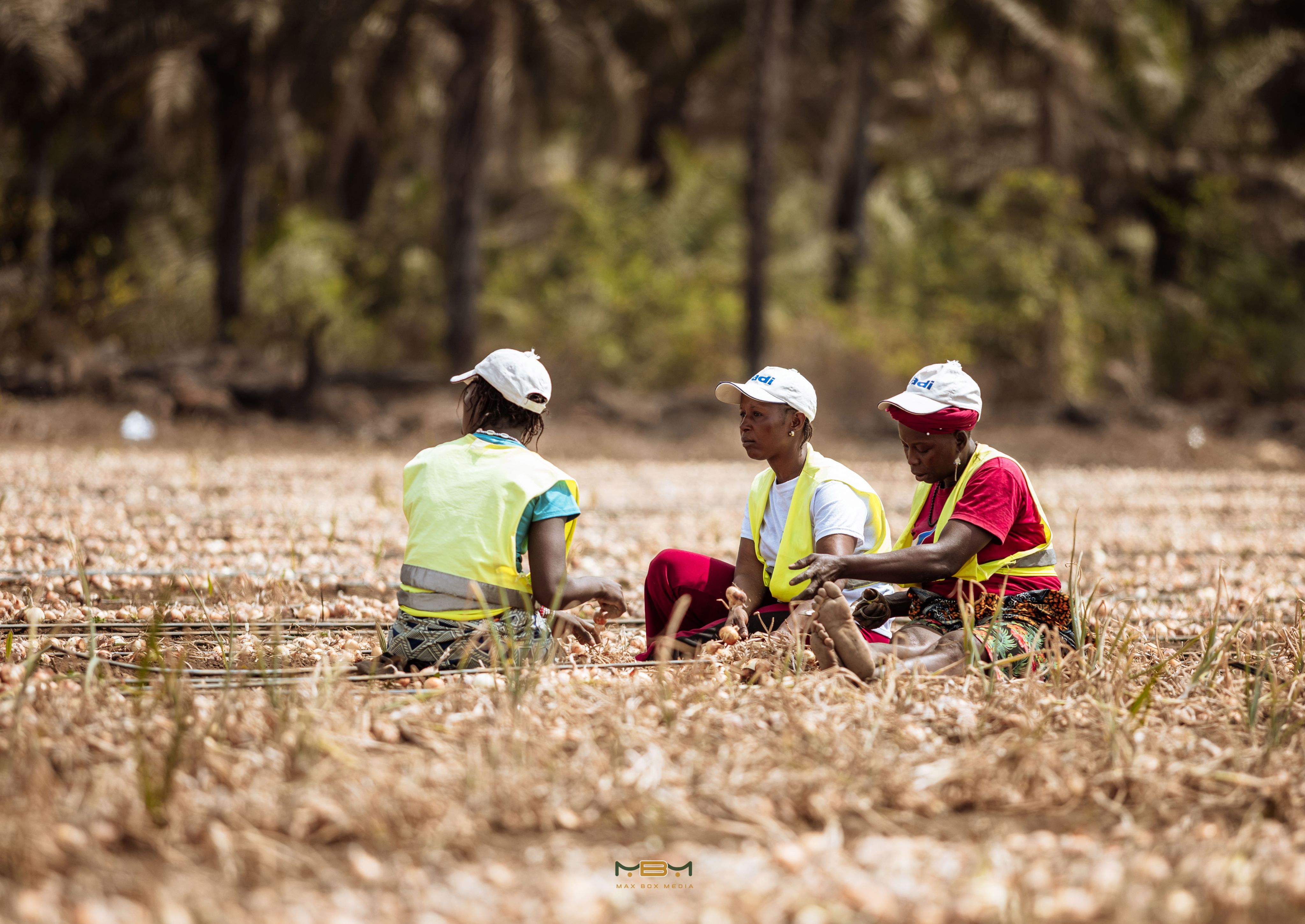
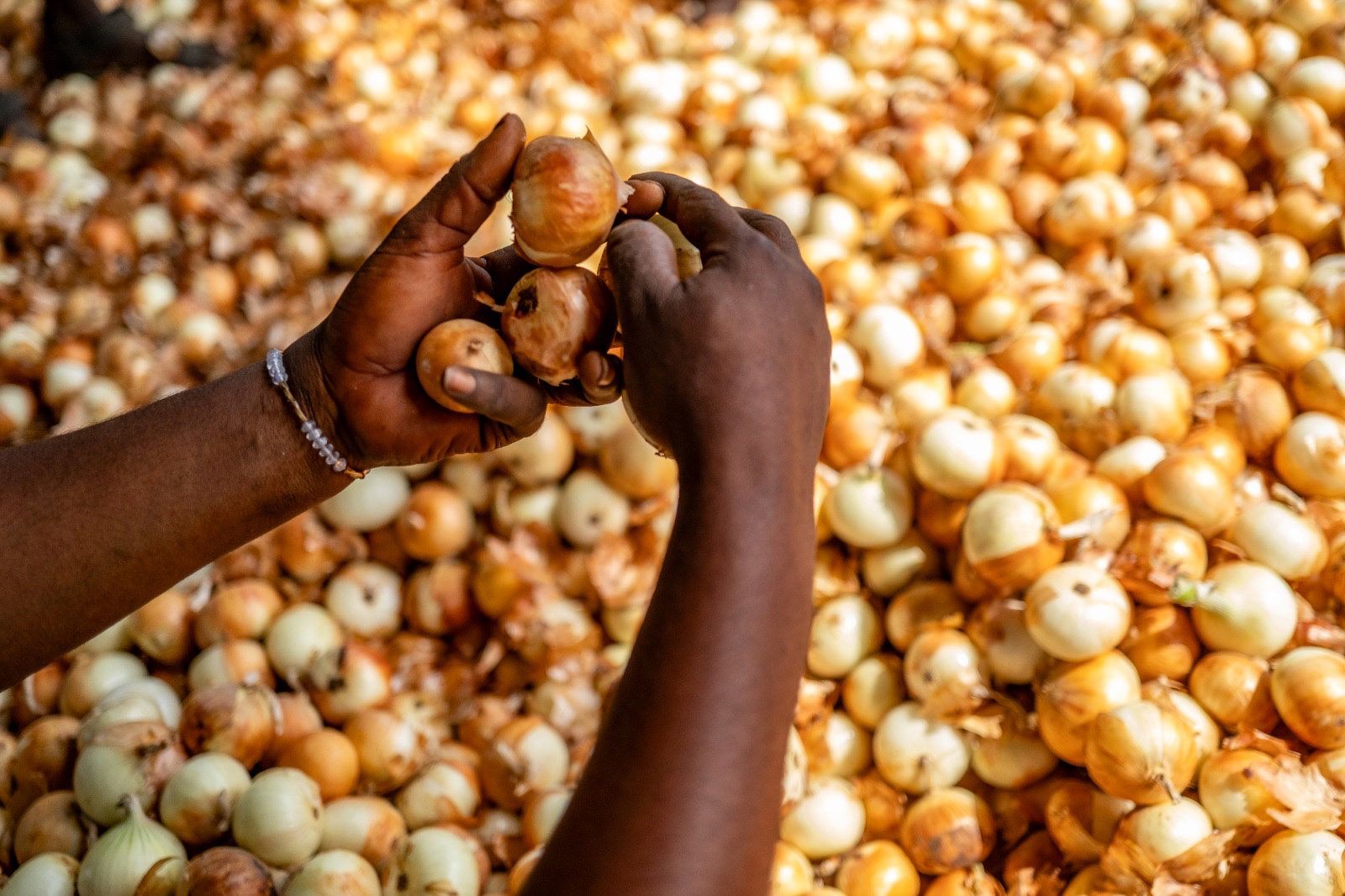
Climate Change and Local Farming Conditions
PCA’s experience illustrates the importance of understanding local growing conditions, something that is becoming more challenging in many parts of Africa as shifting—and often less predictable—weather patterns mean many time-tested farming techniques are no longer applicable.
Instead, and in the face of more erratic rainfall, longer dry spells, and disruptive weather events like floods, droughts, and cyclones, Africa’s farmers and agribusinesses must quickly adapt to maintain or increase their production in a sector where just one failed crop can mean disaster.
The stakes are high. Already in Africa, an estimated 140 million people face acute food insecurity. If the size of Africa’s harvests is clipped by climate change, that number could grow even higher.
“Increasing temperature and weather variability results in more invasive crops, pests, and extreme weather events, and will also increase input costs,” says Yosuke Kotsuji, IFC Regional Industry Manager co-heading Africa Agribusiness. “These challenges are already affecting farmers’ productivity and yields, so thinking about climate is a key driver to sustaining the business.”
Training Farmers on Climate-Smart Techniques
In response to these challenges, development finance institutions, non-profit organizations, investors, and other stakeholders are helping Africa’s farmers and large agribusinesses adapt and modernize their approaches.
Take AgDevCo, for example, an impact investment organization supporting commercial agriculture in sub-Saharan Africa.
Alongside the company’s current agri-investment portfolio of $280 million spanning nine African countries, it helps fund training for smallholder farmers on climate-smart farming techniques.
In Sierra Leone, AgDevCo partnered with cocoa exporter Tradin SL to train 36,000 small-scale farmers on agricultural practices for climate resilience. This includes the use of organic compost, which sequesters carbon and promotes better soil structure, enabling greater water and nutrient retention. It’s a simple practice that AgDevCo describes as “climate change adaptation and mitigation in one.”
Commenting about the project, Chris Isaac, AgDevCo’s chief investment officer said, “Climate resilience means poverty reduction. We need to get farmers technical support for better agricultural techniques. The private sector can be a highly effective mechanism for delivering that support — responsible companies whose own financial performance depends on improving the yields and quality of small-scale suppliers in a sustainable way.”
IFC is incorporating climate-smart agricultural techniques into the agri-sector projects it supports.
Overcoming Soil Erosion and Improving Soil Fertility
In Côte d’Ivoire, IFC is working with cotton producer Compagnie Ivoirienne pour le Développement des Textiles (CIDT) to help smallholder cotton and crop farmers in adopting techniques designed to improve soil fertility and manage soil erosion in the face of changing climate patterns.
Through the program, which is supported by the Private Sector Window of the Global Agriculture and Food Security Program (GAFSP), more than 2,800 farmers have adopted improved practices to date – outstripping the project target of 2,435.
“We are using local inputs such as cow dung to increase the organic make-up of the soil, which reduces evaporation and increases the soil’s water retention,” says Traoré Soleymane, a lead trainer on the program. “We also teach the farmers to build a simple construction over the eroded land to reduce the flow of water so it stays in the soil.”
For Soro Wanzeliwe, who farms cotton, rice, and maize in the village of Sirikikaha, the training has helped her better understand the importance of climate resilience—and increase her production and earnings.
Her crop yield, which fell by about 20 percent due to fluctuating rainfall, eroded land, and the increase of pests which flourish in the longer dry season, has now risen again thanks to the erosion management techniques she has learned. This past season, she harvested 2,6 tons of rice; 1,9 tons of maize and 3,5 tons of cotton – representing a yield increase of about 40 percent from before she received the training.
“The training has made a huge difference,” she says. “I used to take loans to buy fertilizer for my soil every year, but now that I have learned how to make compost, the soil quality on my land is better, the soil stays moist for longer and I don’t have to spend money buying fertilizer.”
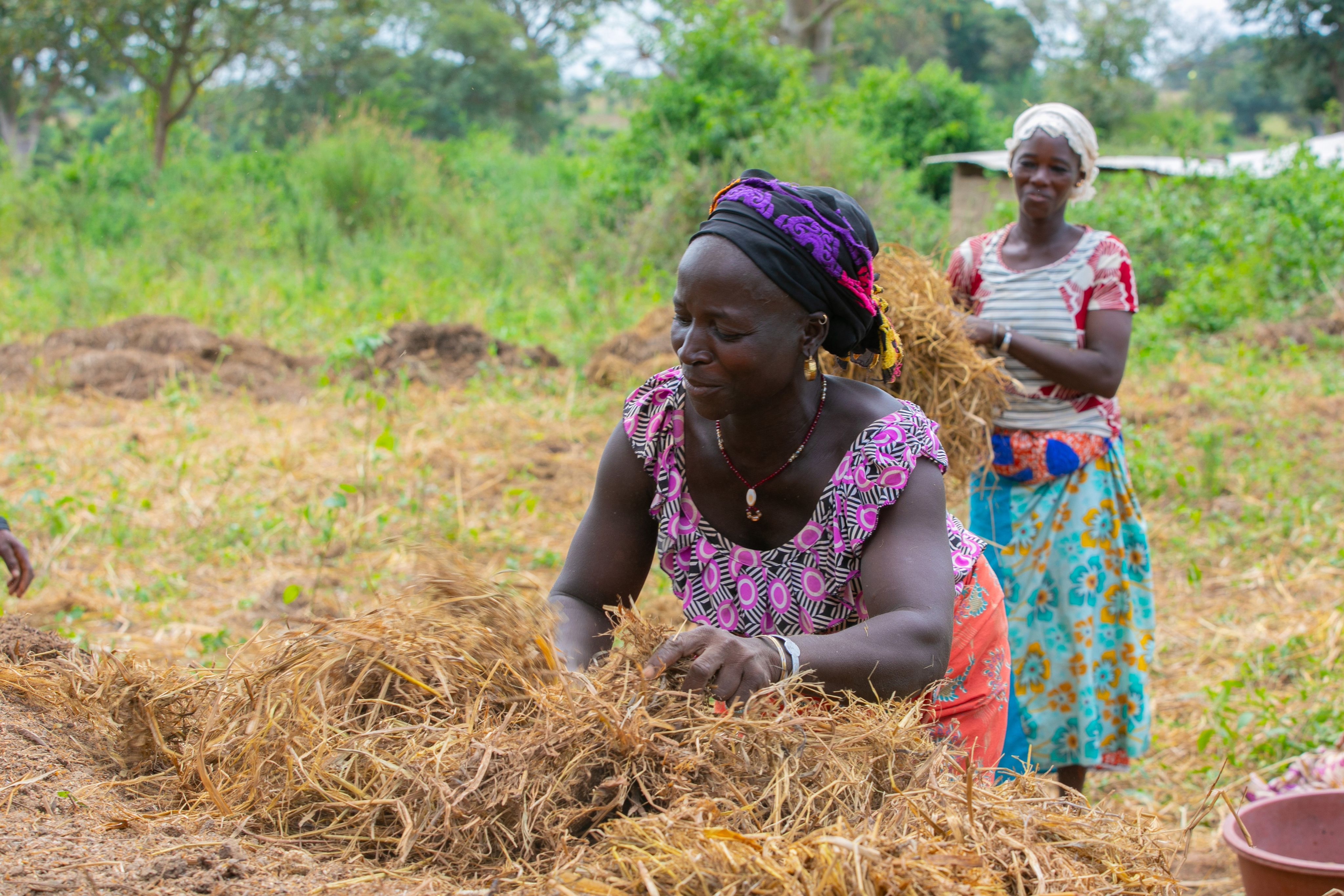
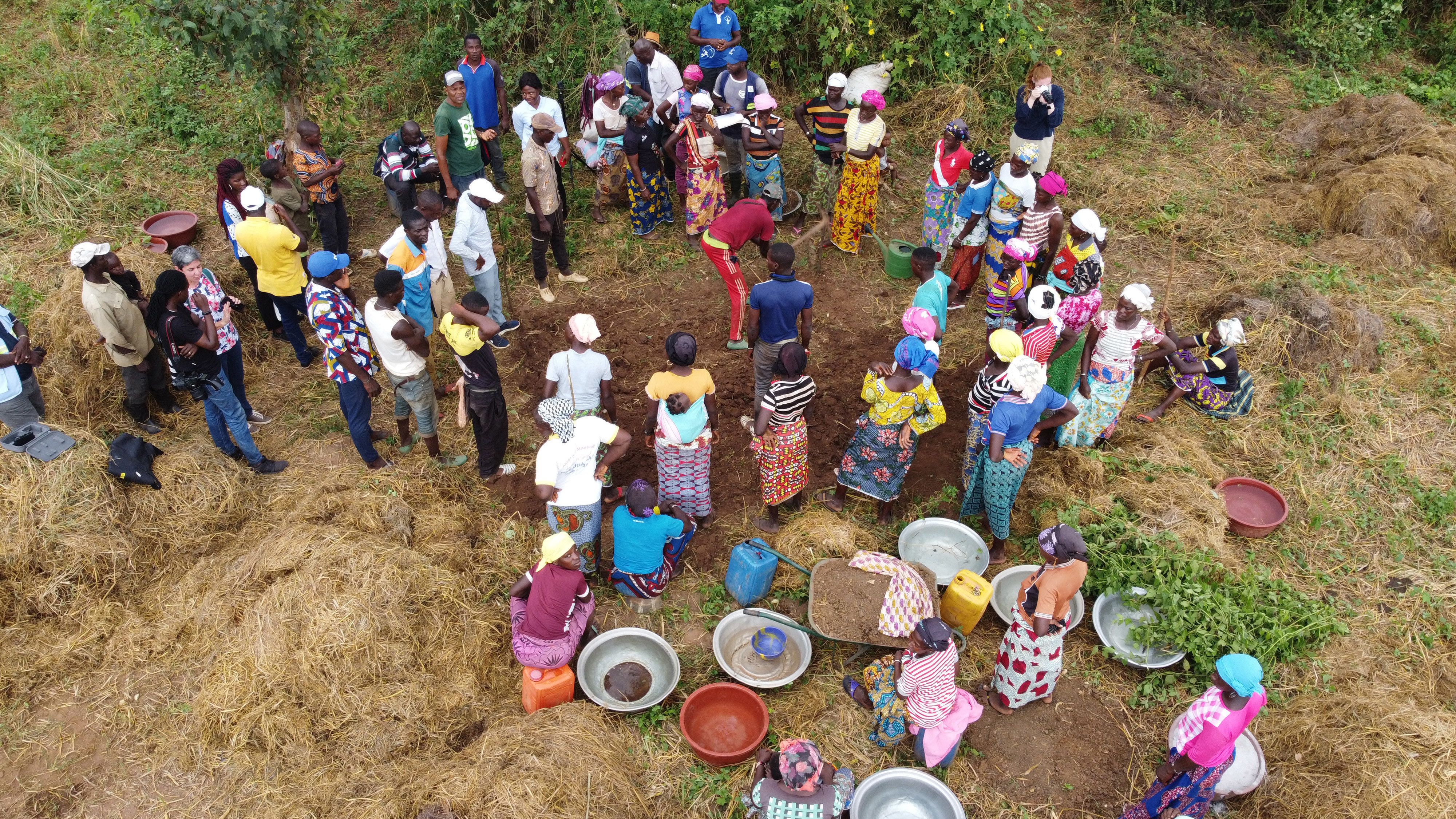
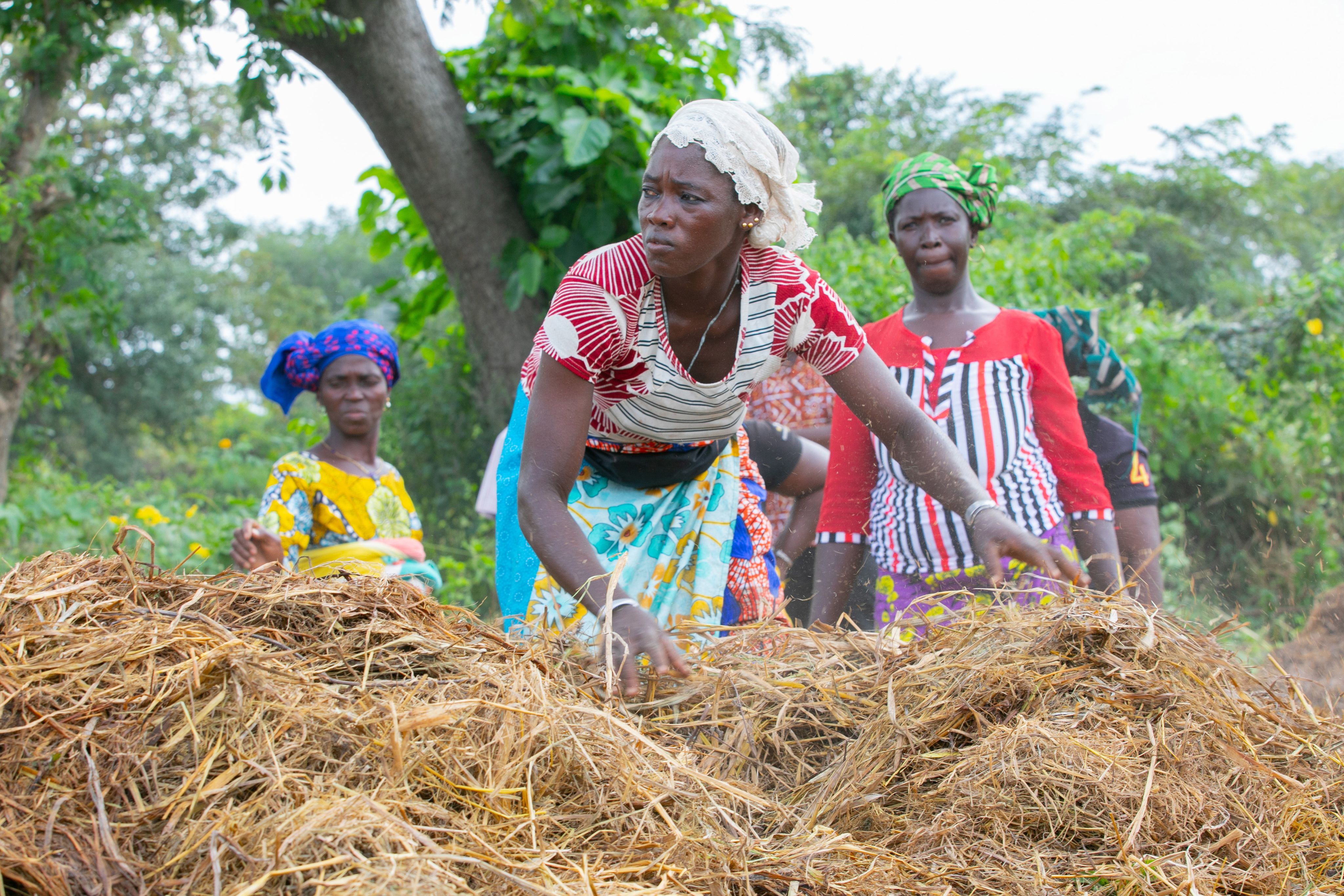
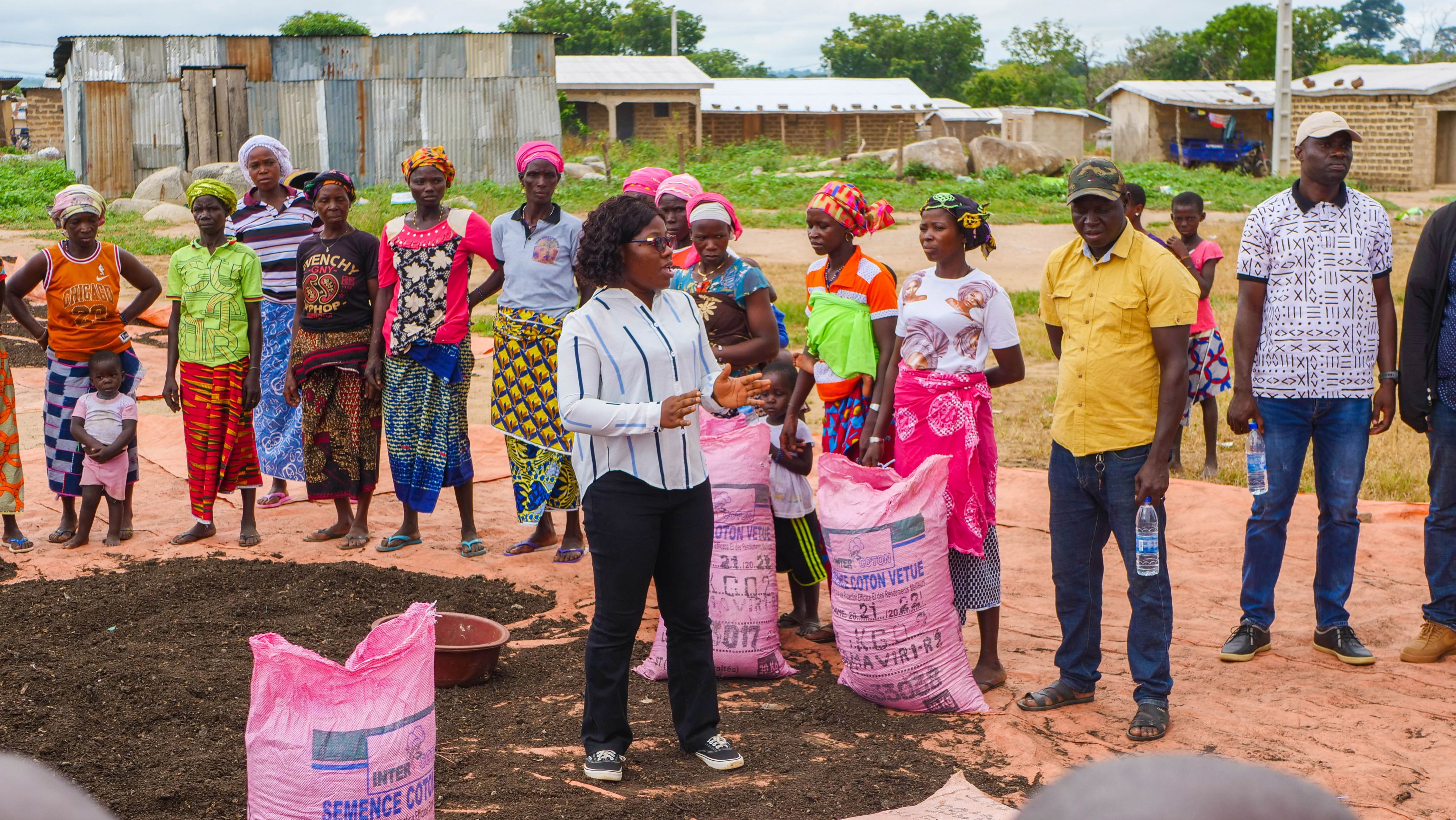
Irrigation Systems to Decrease Reliance on Rainfall
Besides providing training on climate-smart approaches, IFC is also supporting infrastructure improvements to strengthen the resilience and sustainability of African farms.
In Morocco, IFC, in partnership with Banque Centrale Populaire (BCP) and irrigation company Compagnie Marocaine de Goutte-à-Goutte et de Pompage (CMGP), is providing farmers with loans to acquire energy-efficient, solar-powered watering systems, reducing their reliance on rainfall.
Almost 30,000 farmers are expected to benefit from the new equipment by 2027, improving their wheat, sugar beet and potato crop yields and boosting food security.
Climate Insurance to Protect Against Erratic Weather
But sometimes the best mitigation efforts still aren’t enough to protect farmers and their fields.
Extreme weather events are becoming more frequent with climate change, leaving Africa’s smallholders, who provide about 70 percent of the continent’s food, particularly vulnerable. One severe storm or drought could potentially wipe out a whole season’s worth of crops, leaving financial ruin in its wake and further disrupting food security.
Jeya Nsinda, a small-holder maize farmer in Thoyla District, Malawi, experienced this firsthand. When Cyclone Freddy, the longest-running tropical cyclone in history, struck the south of Malawi last year, the storm “affected me heavily,” she said. “The rains were falling from morning until evening, damaging the crops I was expecting to harvest.”
Fortunately, Nsinda was insured by One Acre Fund, a reinsurance fund supported by IFC providing farmers in East Africa with insurance in the case of extreme weather events.
Following the cyclone, Nsinda was able to purchase seeds and fertilizer with her payout from the fund. About 44,000 other Malawian farmers were able to do the same.
“The payments I received after the storm were lifesaving,” says Nsinda.
With IFC’s support, One Acre Fund aims to expand its reach and provide a similar safety net for at least four million small-holder farmers across the region by 2030, helping reduce disruptions to their incomes and productivity.
Farmers in C'ote D'Ivoire are helping shore up soil erosion through simple anti-erosion measures such as these, as taught by IFC and CIDT. Photo: IFC.
Farmers in C'ote D'Ivoire are helping shore up soil erosion through simple anti-erosion measures such as these, as taught by IFC and CIDT. Photo: IFC.
2 Farmers in C'ote D'Ivoire are helping shore up soil erosion through simple anti-erosion measures such as these, as taught by IFC and CIDT. Photo: IFC.
2 Farmers in C'ote D'Ivoire are helping shore up soil erosion through simple anti-erosion measures such as these, as taught by IFC and CIDT. Photo: IFC.
Collaboration Across the World Bank Group
IFC is working closely with other members of the World Bank Group to help provide insurance and credit guarantees to climate-smart agri projects where high investment risk exists; increase crop diversification and teach climate-smart farming techniques to farmers in certain African agricultural value chains; and purchase carbon credits from climate-smart power producers to provide clean power to agro processing companies.
For example, the World Bank’s Multilateral Investment Guarantee Agency (MIGA) provided guarantees to help mitigate the political risks for investments made by Agrivision, which operates grain-related agribusinesses and related value chain assets in Zambia. The guarantee covered circumstances such as losses emanating from the company’s inability to convert local currency earnings into forex and damage to the company’s assets from war and civil disturbance events.
Bolstered by MIGA’s guarantees, Agrivision introduced climate-smart agricultural practices into its operations ranging from crop rotation and zero tillage to soil and water management and technological improvements to increase productivity and yields.
Harnessing Africa’s Full Agri Potential
Back in Sierra Leone, PCA is adding additional crops to its onion business. It ran a successful pilot for maize cultivation during Sierra Leone’s recent rainy season, harvesting about 40 hectares of corn at an estimated yield of three metric tons per hectare. PCA aims to ramp up to 70 hectares of maize next planting season, with a view to supporting the country’s poultry sector by providing corn-based chicken feed — further contributing to food security and supporting soil health through rotational growing.
PCA is also exploring solar options to replace its generator, with the goal of powering all of its farming operations with renewable energy.
Climate-smart agriculture demands a rich mixture of approaches — from understanding local conditions to teaching appropriate farming skills to developing resistant and resilient crops and infrastructure that protect farms against climate change-induced damage.
“Africa has vast natural resources—the continent is home to 60 percent of the world’s unused arable land—and offers huge potential solutions to the world’s food security issues,” says Kotsuji. “As we become smarter and smarter about how to tap into that potential by building agricultural value chains in climate-smart ways, Africa shall be able to feed itself and can slowly start moving into its rightful place as a net provider of food across the globe.”
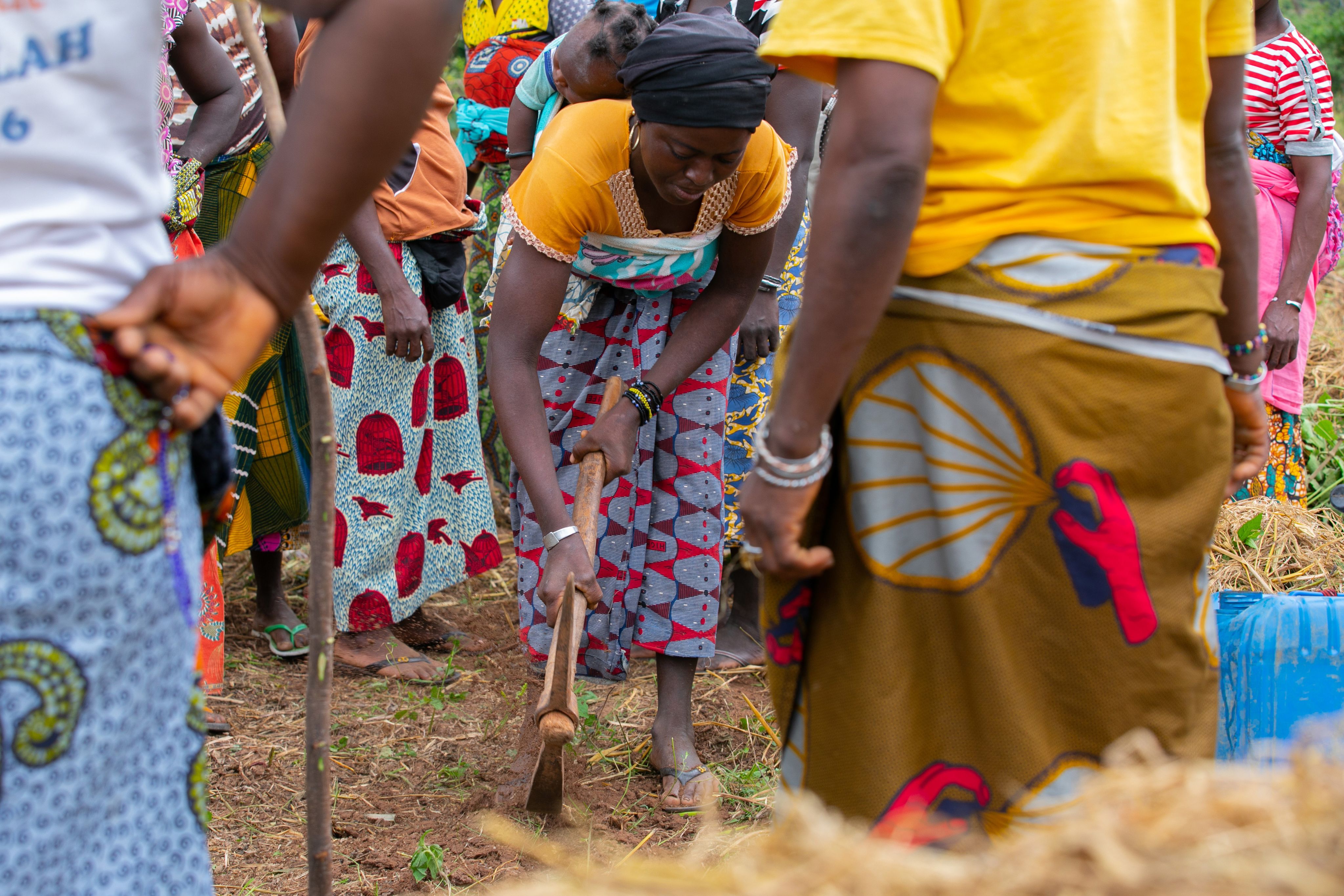
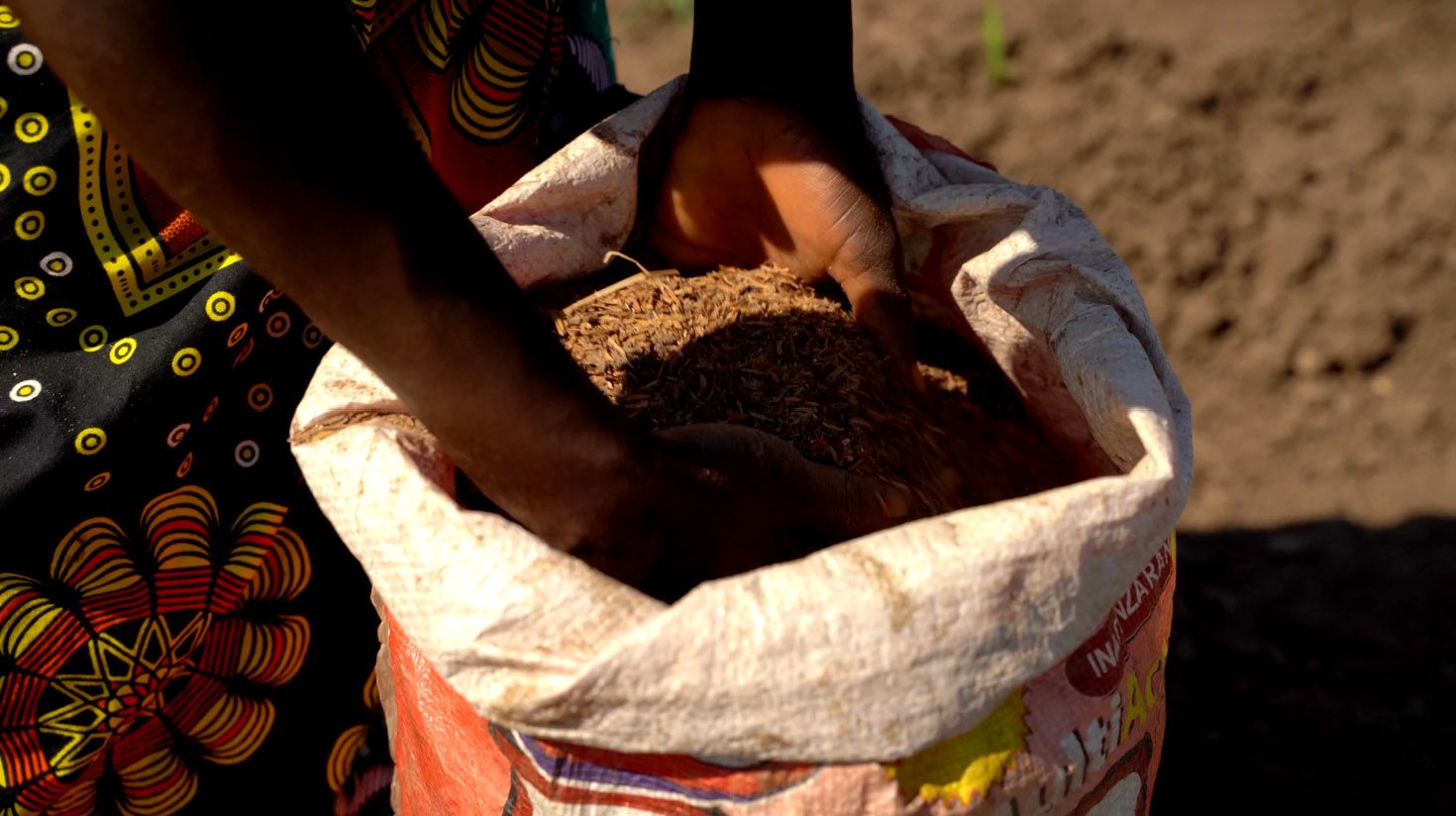
Published in November 2024

